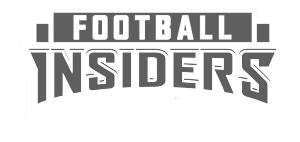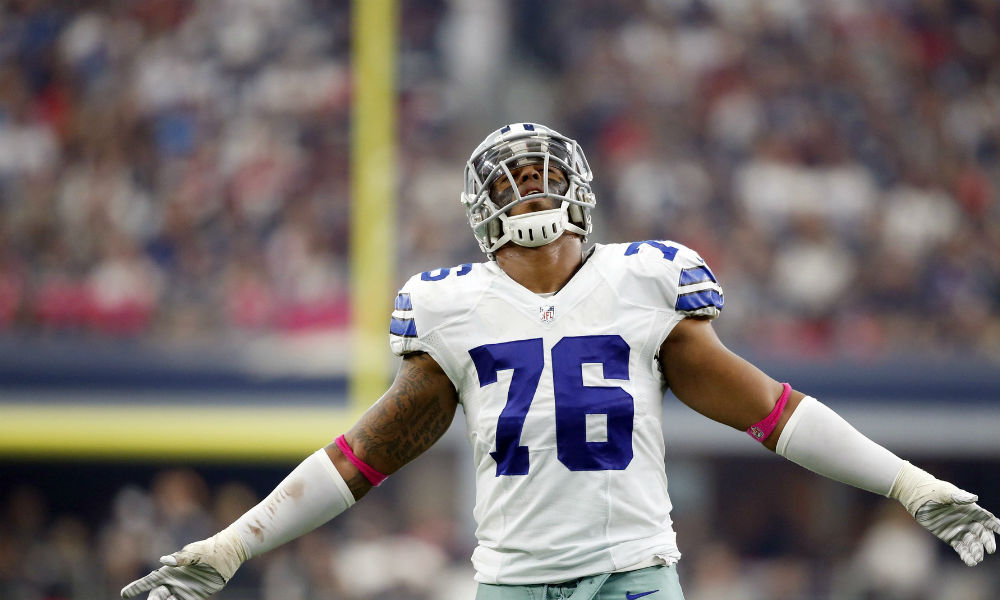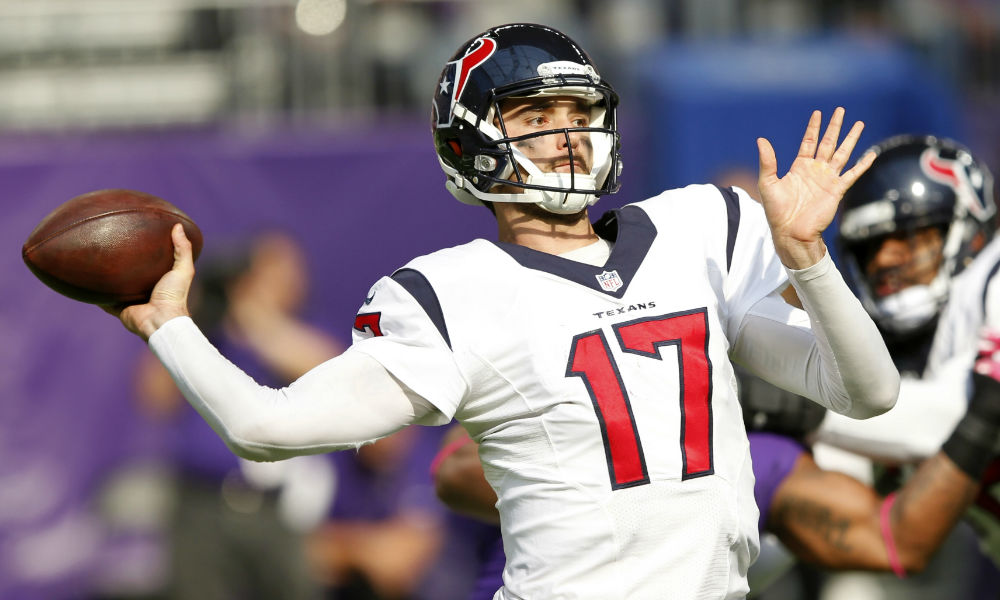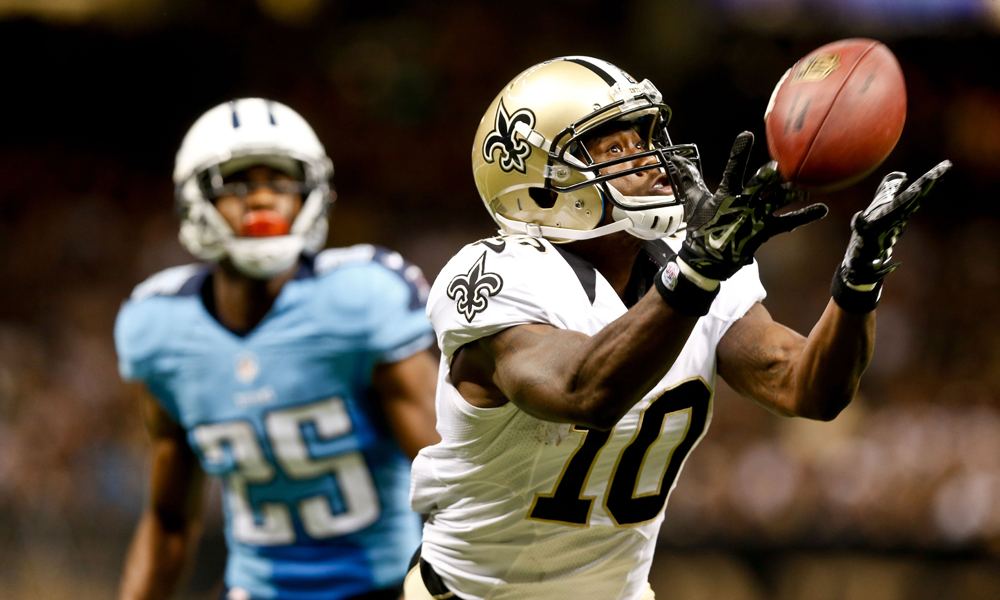News
Josh Gordon Suspension Calls NFL Motivation Into Question
Does the NFL really care whether or not Cleveland Browns receiver Josh Gordon gets the help he needs?
Who is the NFL for?
It seems like a silly question, of course, but the NFL’s handling of Cleveland Browns wide receiver Josh Gordon is a great time to take a longer look at the notion that the answer may not be as simple as one might think.
The league suspended Gordon for “at least” one year due to yet another infraction against their substance abuse policy. As Gordon pointed out himself in an open letter to the media at Medium.com, the suspension stems from drinks on a flight with teammates. Though that hardly seems like something worthy of a year-long suspension, Gordon allowed himself to be tested for alcohol (which he couldn’t have due to previous infractions) and is hardly going to get any benefit of the doubt.
What is Gordon going to get, though?
In their statement following the suspension, the Browns paid lip-service to the idea that this suspension should give Gordon the time to get the help he needs.
“Our hope is that this suspension affords Josh the opportunity to gain some clarity in determining what he wants to accomplish moving forward and if he wants a career in the Nation Football League,” the team’s statement read. “We will have no further comment on Josh as he will not be permitted in our facility for the duration of his suspension.”
Catch that last part?
The NFL spends a lot of digital ink within their substance abuse policy making the same sort of case – that this is all for the player’s benefit to help them overcome their own personal demons, but then quickly goes on to make sure that player has no place in the NFL while he fights those aforementioned demons.
His job is ripped away from him, yes, but it’s oh so much more than that.
Let’s take a step back and really identify what’s going on here.
Put yourself in the shoes of an NFL player. There’s a lot to take in before we get to that reality. First, it’s likely you’re the sort of A-type personality who has always been the best at what he’s done and thus looked at as a natural leader of sorts both on the sports teams you captained and around neighborhoods and communities that treated you like the little prince you were.
Next, realize that all of the trappings around the game are likely the totality of what you know about life. Most of your friends are teammates. Most of your role models are coaches. Most of your self worth is derived from what happens between those tall yellow goal posts. It’s not just what you know and what you do, it’s who you are.
For Gordon and many others like him, NFL suspensions aren’t just a rolled up newspaper-like swat on the nose. Lengthy suspensions like Gordon’s rip away a player’s support system and really do everything they can to set a player up for failure.
This is where the usual refrain comes in: But playing in the NFL is a privilege, not a right!
Well, no… that’s actually not the case at all.
People who say things like that are usually fans or members of the media who can’t accurately answer the first question posed above: “Who is the NFL for?”
If playing in the NFL is a “privilege,” one is holding the game in a higher esteem than they probably should — as an office rather than simple employment. A privilege is something special, and the word often entails something besides (or at least in addition to) merit that allows a person access to that special thing.
Who the NFL is for, then, becomes a much more abstract notion. It is as if the game exists as a paragon of all that is good in athletics and we’re all just trustees of the game in different ways. What a privilege, then, to get to do what all of us wish we could… to be in a position any fan would switch “Trading Places”-style in a heartbeat!
What rubbish.
That isn’t how the NFL works and it isn’t what the NFL is.
The NFL is a corporation. It is a multi-billion dollar entertainment industry with 32 major shareholders (owners) and ties to some of the biggest companies in the world through television partners, investments and the good old fashioned “old boys” club.
The NFL is for the owners.
It is not for you or the players. It is not for the coaches or the general managers. It is not for the media. It is not for television. All of those things—you and me included—are simply avenues for which the owners acquire money.
It is not a privilege to play in the NFL, it is a job that players earn through years of blood, sweat and tears and on the basis of being one of the most talented athletes on the planet. It is no more a privilege than the young college graduate who gets a job at an investment firm with his sparkling Ivy League grades or the high school student who sets himself apart from the crowd as a burger flipper.
It is with this view, then, that we see what the NFL suspension is really meant to accomplish. The revenue stream just got muddied, and the NFL needs to do a little dredging. Bad apples in the mix means sponsors may not be so willing to pony up dollars. A game that allows drug users and drunkards may not appeal to families or the female demo quite as easily, and we all know that one bad apple can spoil the bunch. So, let’s just remove the bad apple until it can prove it’s not a bad apple.
Look, I’m not making the case that players shouldn’t be held accountable. Of course they should be, just like employees at every other job. In fact, I’ll even go one step further and say that players should be held to higher standard because of their high pay and even higher visibility.
It’s a tradeoff that is part and parcel of being an NFL athlete.
But let’s just stop pretending these instances are anything other than what they truly are: the NFL trying to manage its assets in the most cost-effective manner. They’re not trying to help Gordon or take a stand on social issues. They’re simply toeing the line between his potential to cost them money with his behavior and earn them money based on his talent.
As long as the NFL continues to give the cold shoulder (stiff arm?) to their most troubled players, continuing to treat substance abuse like a contagion that needs removal rather than an illness that needs their full aid and support, there will always be players who mess up time and again while the NFL marches on without them.
News
Buccaneers admit mistake, boot Aguayo
Source: Mike Florio of ProFootballTalk
Powered by WPeMatico
News
Did Bucs put too much pressure on Aguayo?
Source: Mike Florio of ProFootballTalk
Powered by WPeMatico
News
Broncos holding their breath on Derek Wolfe
Source: Mike Florio of ProFootballTalk
Powered by WPeMatico




